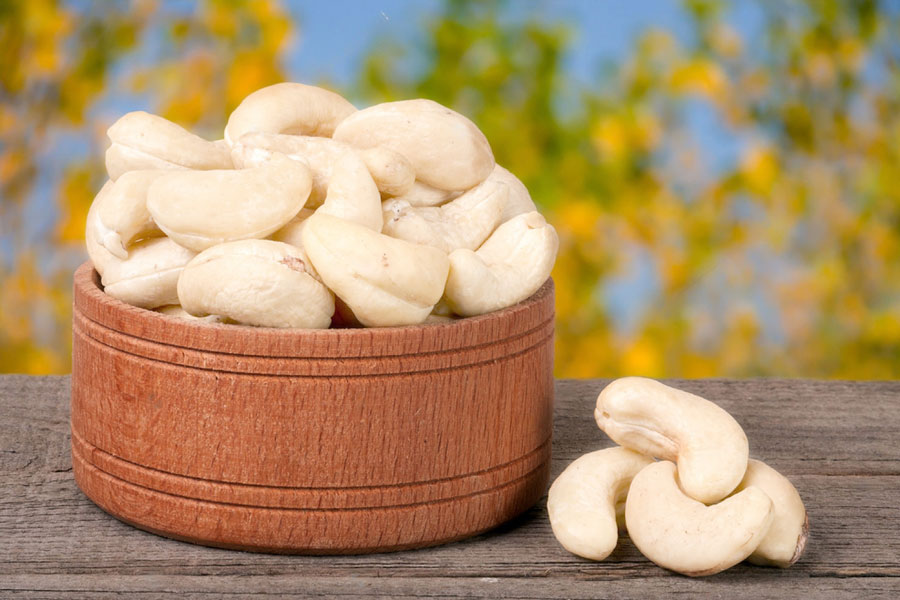
 Nutritional Values
Nutritional Values
Here's a table outlining the nutritional values of cashews per 100 grams, along with their nutritional benefits:
| Nutrient | Amount per 100g | Elaborations |
|---|---|---|
| Calories | 553 kcal | Cashews are energy-dense, providing a substantial calorie content, making them a good source of fuel for the body. However, portion control is essential due to their calorie density. |
| Fat | 43.9 g | Cashews are relatively high in healthy fats, predominantly monounsaturated fats, which can contribute to heart health when consumed in moderation. They are also a good source of essential fatty acids, including omega-6 fatty acids. |
| Carbohydrates | 30.2 g | Cashews contain a moderate amount of carbohydrates, providing energy for the body. They also contribute to the overall fiber content. |
| Fiber | 3.3 g | Cashews contain dietary fiber, which aids in digestion, promotes satiety, and helps maintain bowel regularity. |
| Protein | 18.2 g | Cashews are a valuable source of plant-based protein, making them an excellent option for individuals following vegetarian or vegan diets or looking to increase their protein intake. |
| Vitamin E | 5.3 mg | Cashews are a rich source of vitamin E, an antioxidant that helps protect cells from damage caused by free radicals. It also plays a role in maintaining healthy skin and immune function. |
| Thiamin (Vitamin B1) | 0.4 mg | Cashews contain thiamin, which is important for converting carbohydrates into energy and maintaining proper nerve and muscle function. |
| Riboflavin (Vitamin B2) | 0.1 mg | Cashews provide riboflavin, which is involved in energy production, growth, and the maintenance of healthy skin and eyes. |
| Niacin | 1.1 mg | Cashews contain niacin, which plays a vital role in converting food into energy, maintaining healthy skin, and supporting the nervous system. |
| Vitamin B6 | 0.4 mg | Cashews contribute to vitamin B6, which is involved in brain development, the production of neurotransmitters, and the synthesis of haemoglobin, among other functions. |
| Copper | 2.2 mg | Cashews are a significant source of copper, which is essential for the production of red blood cells, collagen formation, and the maintenance of proper immune function. |
| Magnesium | 292 mg | Cashews provide magnesium, which is crucial for maintaining healthy bones, regulating blood pressure, and supporting muscle and nerve function. |
| Phosphorus | 593 mg | Cashews are a good source of phosphorus, which is necessary for bone health, energy production, and DNA synthesis. |
| Zinc | 5.8 mg | Cashews contain zinc, which is involved in immune function, wound healing, and DNA synthesis. |
| Iron | 6.7 mg | Cashews provide iron, an essential mineral for oxygen transport, energy production, and the synthesis of red blood cells. |
Copyright ©2024 Shree Krishnakrupa Cashews Private Limited. Designed By Infouna technologies Pvt. Ltd.